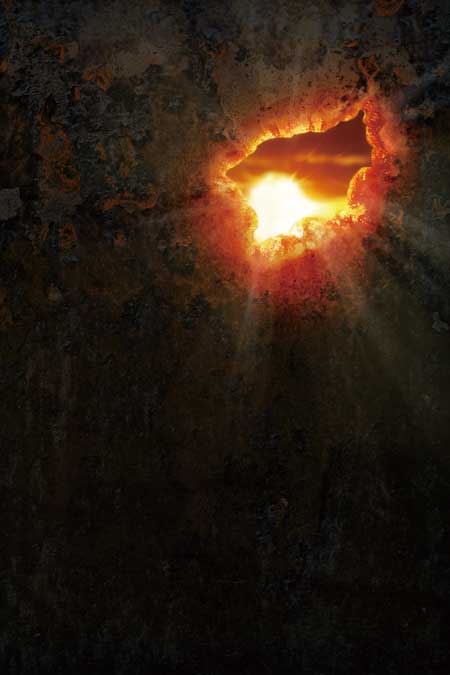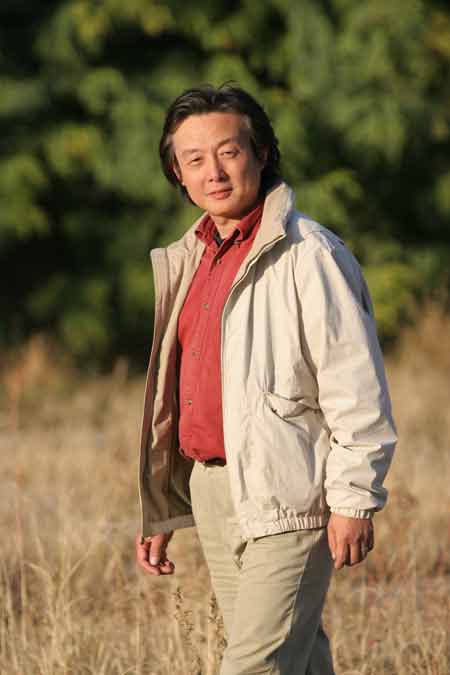Burnt offerings: Burnt by the Sun

When watching the play Burnt by the Sun in London in 2009, Chinese theater director Wang Xiaoying felt a resonance in his heart: a play interwoven with politics and the heroes' dramatic fate, against a backdrop of Stalinist rule, Burnt by the Sun starts out like something by Chekhov but ends up a gripping thriller.
Before the play was even over, he had already bought the rights and since then has been pondering over how to put the story on stage. The play, directed by Howard Davies and adapted by British playwright Peter Flannery, from Russian director Nikita Mikhalkov's 1994 Oscar-winning film of the same title, won critical acclaim with Michael Coveney of the Independent lauded it for "performing the miracle of re-releasing a film [and] not reducing it, as theatre."
The reason he was moved was largely because of "what I have experienced and my understanding and reflections on life,"
|
|
|
Director Wang Xiaoying. |
Wang told the Global Times. "In the play, I do not mean to hint at any history of a certain country because the story does not talk about the political and social scene directly; rather, it talks about how people get involved in a political campaign against a background," explained the director, who has directed a number of acclaimed plays including The Salem Witch, Copenhagen, The Death and the Maiden.
"Everyone has his or her own life [and] cultural background. When one is involved in it, he then becomes a victim of the age – that is what the play is really about," he added.
Now only a month ahead of its premier at the Capital Theater in Beijing, Wang is busying himself rehearsing,trying to give it a Chinese perspective. With a new, Chinese title Shen Du Zhuo Shang (literally "Burnt Deeply"), he wishes to go beyond the physical injury caused by scorching and probe further into the harm the soul suffers.
"Political campaigning in peacetime is like a battleground without gunfire. Everyone might win or lose on such a battleground. But the memories about the 'war' are deep in their heart, no matter if you see them or not, they are right there," he explained.
Set in the Soviet Union in the 1930s, the tragic story takes place over the course of one summer's day. Colonel Kotov, a hero of the Russian Revolution, is spending an idyllic day in the country with his young wife and their extended family.
But with the unexpected return of his wife's former lover Mitya after a long absence, the family begins to feel the horrifying reach of Stalin's rule. As the story unfurls, the family is gradually threatened by military and human enemies and their fate takes a dramatic turn at the end of the story.
Like the film, the drama seduces with a relaxing atmosphere at the beginning, as Kotov, played by Zhang Qiuge, is seen singing and dancing with his daughter.
"The atmosphere is somehow like Chekhov. But in their relaxing life, with the sudden reappearance of Mitya, a huge and potential crisis begins to emerge a bit by bit. The leisurely life is actually an illusion," Wang explained.
Although he has directed works that touch on human nature before, the director jokingly said that this one, which focuses more on the inner struggle between the characters, caused panic in both him and the actors.
With a simple setting, the play relies in a large part on the actors to bring out the inner issues of the characters to the audience. They need to show "how people are involved in such a political campaign. To show feelings entangled with detest and hatred, you cannot rely on props, but acting."
For example, he said, Mitya, now a special agent of the KGB, seems to seek revenge on the general for forcing him to leave his former lover and destroy his potential career as a pianist. But he is actually someone trapped in a bigger political campaign," the director explained. "He comes to avenge on behalf of society."
Wang explained that the actor therefore, cannot overtly show anger and resentment towards his rival and his former lover.
"You can't act hatred with an obvious trace of hatred, or anguish with anguish, but the other way round," he noted.
"The audience might have already guessed the reason why he is back…What the actor needs to do is to bring a bigger threat to the drama."
While the Davies original won critical acclaim when it was first staged in 2009, it was also being criticized for omitting crucial scenes depicted in the film, such as a picturesque scene on the river with Kotov and his daughter. To Wang, however, a drama has its own ways to highlight a story and its conflicts.
"Although the storyline is the same both in the film and play, the play is better at highlighting the conflicts among the characters. If compared a film to an essay, a play is then more dramatic."
 0
0 








Go to Forum >>0 Comments